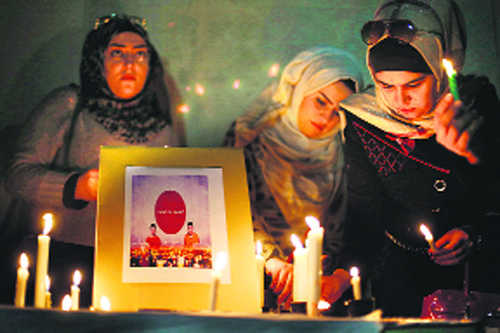Amman/Baghdad, February 2
When her husband blew himself up in a luxury hotel during a wedding in Amman a decade ago, Sajida al-Rishawi was meant to die too, but her suicide bomb belt did not go off. Today, as a death-row prisoner in Jordan, she is a heroine to jihadists in the region, who may be willing to swap a Jordanian pilot for her.
Rishawi, now in her mid-40s, has an influential background in militant circles: she hails from a powerful Sunni clan in Western Iraq, and her brother was a top lieutenant of Abu Musab al-Zarqawi, the founder of al Qaeda's Iraq branch. Today, that group has since transformed itself into Islamic State, breaking off from al Qaeda and controlling swathes of Iraq and Syria.
One of her cousins, Abdul Sittar Abu Risha, was a major figure in establishing the Sunni Awakening, a tribal movement that joined forces with the U.S. military and turned against Al-Qaida.
Although she is just one of thousands of suicide bombers and would-be bombers who have been sent to kill and die by al Qaeda and its offshoots, her background has helped turn her into a symbol to jihadists, who would make the most of her release.
"She is an old woman, she does not have that much importance," said Sheikh Mehdi Abdel Sittar Abu Risha, another cousin and senior figure in her prominent Abu Risha tribe in Iraq's Anbar province.
Winning her freedom would be an important victory for Islamic State's leader Abu Bakr al-Baghdad, Zarqawi's successor, whose aim is to show that his organisation is the foremost protector of Sunni militants across the Middle East, particularly among Iraq's tribes. — Reuters
Unlock Exclusive Insights with The Tribune Premium
Take your experience further with Premium access.
Thought-provoking Opinions, Expert Analysis, In-depth Insights and other Member Only Benefits
Already a Member? Sign In Now










